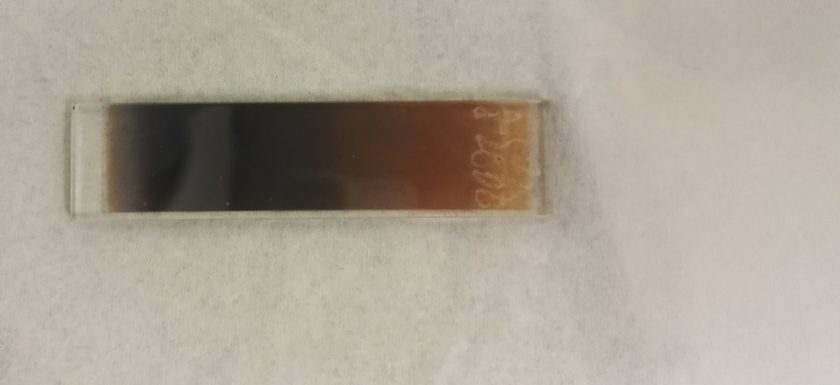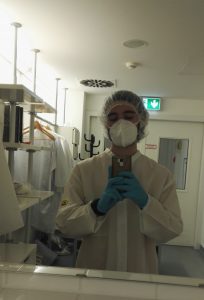
During my studentship there is one thing I have discovered above all: patience. Patience is the mother of science, as the saying goes. And I have learned it the hard way. My project is a complex one; like most science projects. I’m trying to synthesize and characterize a new material to act as an absorber of light in solar cells. It is called: copper-barium diselenide. More specifically I want this material to be a top-cell absorber in tandem cells. In fact, this synthesis is not easy: little is known about the compound, and barium is very reactive with oxygen, so one must be very careful with the transport and handling of the samples.
Complications, step by step
First challenge: the deposition technique we were going to use in principle did not work in reality. Unluckily the material was decomposing while being deposited, and thus rising the pressure to unacceptable levels. So we had to search for other options. I was sent to Wannsee, the second site of Helmholtz-Zentrum Berlin (HZB) – quite far away. In the labs there, they had a different deposition technique which should work.
However, we needed first to mount a glovebox and attach it to the deposition chamber. In the glove box we would be able to work in a nitrogen atmosphere and avoid contact with oxygen. Another complication arose with the machine itself, which is a prototype and fails in some aspects at certain times. Unfortunately, the list of challenges is long: we had to refill the gas in a laser, calibrate several times because barium is not an usual material to work with. Then we had to search for a suitable substrate size for transport back to Adlershof. Additionally, we had to try finding out the appropriate parameters to deposit barium and copper in the adequate amounts…
One month only for preparations
All of this has taken one whole month out of the two months I am here for my Studenship at HZB. So far, I have had zero samples to characterize because we still have to selenize the copper-barium samples we have. And many times, I have simply had to wait. Wait at a desk, trying to do something but being unable to. I asked myself many times “what I am doing here” and not knowing the answer drove me insane. Having to travel for two hours each day (between Adlershof where I was based and Wannsee) just to wait in an office, I thought that I was wasting my time that I was not doing enough. But then again, I am just a student, what could I possibly do to quicken this tedious process? The answer is: have patience. Of course, I had the chance to speak to people about my frustration, mainly my supervisor and colleagues. However, that did not mean my frustration would go away just like that. In fact, I saw one of my colleagues very frustrated as well due to her PhD not rendering good results. Science can be quite rough sometimes.

A tiny step for a better future
Good news in the last two weeks: I have been able to get 2 samples for characterization (see image) – what a long way to obtain these.
This project is ambitious. Too much, maybe, for two months’ time. It attempts to create cells with a new absorber which has never been studied before. And doing that in just two months is nearly impossible. Because working in a state-of-the-art facility, where they investigate cutting-edge innovations, is not a fast process. Everyone wants a turn on the machines and the resources are limited, as they are in every other place and this adds up to the overall slowness of the investigation. I didn’t notice that until now. It still doesn’t mean that I like it. But I have come to terms with it. I have accepted that I won’t see my work finished. But I feel content, knowing that I am helping to pave the way for a cleaner, better future. That my little contribution helps for a better understanding of the world. And that, really, is what science is all about.
Our 2020 Summerstudent Daniel also wrote a piece about how to explore Berlin. It is his Berlin’s guide for fellow students.

I know how it can be at times, I did my thesis research on Passivation of Lead Selenide quantum dot films using Zinc oxide atomic layer deposition (ALD). It was quite an interesting topic.
Thank you for your contribution. I think you have a good point here: Patience and perseverance is the daily bread of a scientist. It is a damned lie that science is always exciting….no, it isn’t. But nevertheless there are moments of great joy, if something works out – finally….it needs very often long months of hard work to get there. So please do not loose patience too soon.